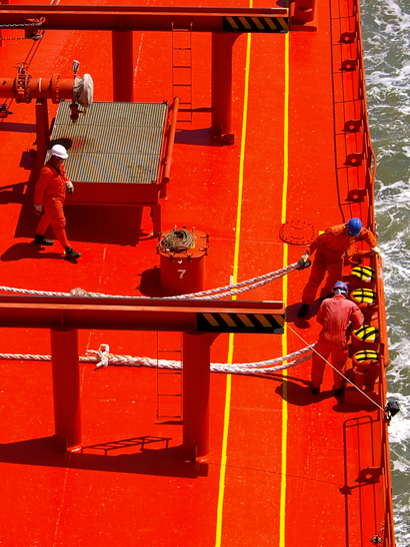There’s no doubt that the men and women who work at sea or in support of shipping are the backbone of the global supply chain. Often working for long periods away from home, seafarers and those on shore make sure goods, whether that’s food, raw materials, manufactured goods or energy, are safely moved from one place to another to meet world demand.
The COVID‑19 pandemic has brought employee wellbeing sharply into focus, with many recognising the pandemic’s impact on day‑to‑day operations and crew changes, as well as around mental health and fatigue. With the pandemic landscape changing rapidly, some organisations are struggling to implement necessary support structures. Therefore, it is important that the industry works together to learn from each other, to enact firm and stable disease management measures, and to ensure that staff are mentally and physically supported.
LR has come together with a variety of industry bodies to deliver ‘The Maritime Industry COVID‑19 Welfare Survey’, soliciting views across regions and at different institutional levels on how organisations have supported their crew and onshore workforce during this global pandemic. The survey will seek to draw insights on organisational culture and its effects on mental wellbeing, and the lessons that owners/operators can learn from the current crisis.
Importantly, the survey will point to trends that may reshape the maritime landscape around disease management, healthcare and remote working. We also expect it to showcase best practice, as well as indicate shortfalls in onshore and crew management and communication around the crisis.
The survey was launched on 25 June 2020, the ‘Day of the Seafarer’
“This pandemic has highlighted the unique position of many of our seafarers on extended contracts at sea, unable to return home. It is important that we understand how well we are supporting seafarers, as well as working in the maritime industry onshore throughout these difficult times.
This Industry‑wide survey will help us to determine what is being done, how mental health and wellbeing has been affected, and what we can do better as an industry to support our people,” says Jo Stokes, LR’s Senior Principal Human Factors Consultant.
Research helps tackle the stress and loneliness of life at sea
Lloyd’s Register Foundation (LRF) is supporting research to protect seafarers during COVID‑19 and beyond.
The extended isolation of seafarers during the COVID‑19 epidemic has highlighted the stresses of life at sea. As the CHIRP Maritime Programme, a confidential safety reporting initiative supported by LRF, has found, this could lead to long‑term physical and psychological health implications for crew members. CHIRP Maritime has recently published three insight articles which seek to further explore the difficulties that mariners are encountering during these extraordinary times. Insights can be found on their website publications page, entitled COVID19 General Medical Advice, Focus on Seafarer Wellbeing during the COVID-19 Pandemic and Trapped by COVID-19 – highlighting the plight of seafarers on board vessels.
The seafarer’s life, never easy, has evidently become more and more stressful in today’s competitive commercial setting. LRF is working with researchers to persuade shipping firms to improve conditions for their employees, who may be at sea for up to a year without a break. This puts their mental and physical health – and the safety of shipping – at stake.
LRF has awarded a grant to a project being run by Cardiff University’s Seafarers International Research Centre (SIRC), to bring much‑needed change to this challenging career. They have drawn on years of global research to come up with a new, more humane, specification for accommodation on ships. It could see an end to noisy, cramped, cluttered cabins that lead to lack of sleep and dangerous levels of fatigue, a contributory factor in one in 10 accidents at sea.







